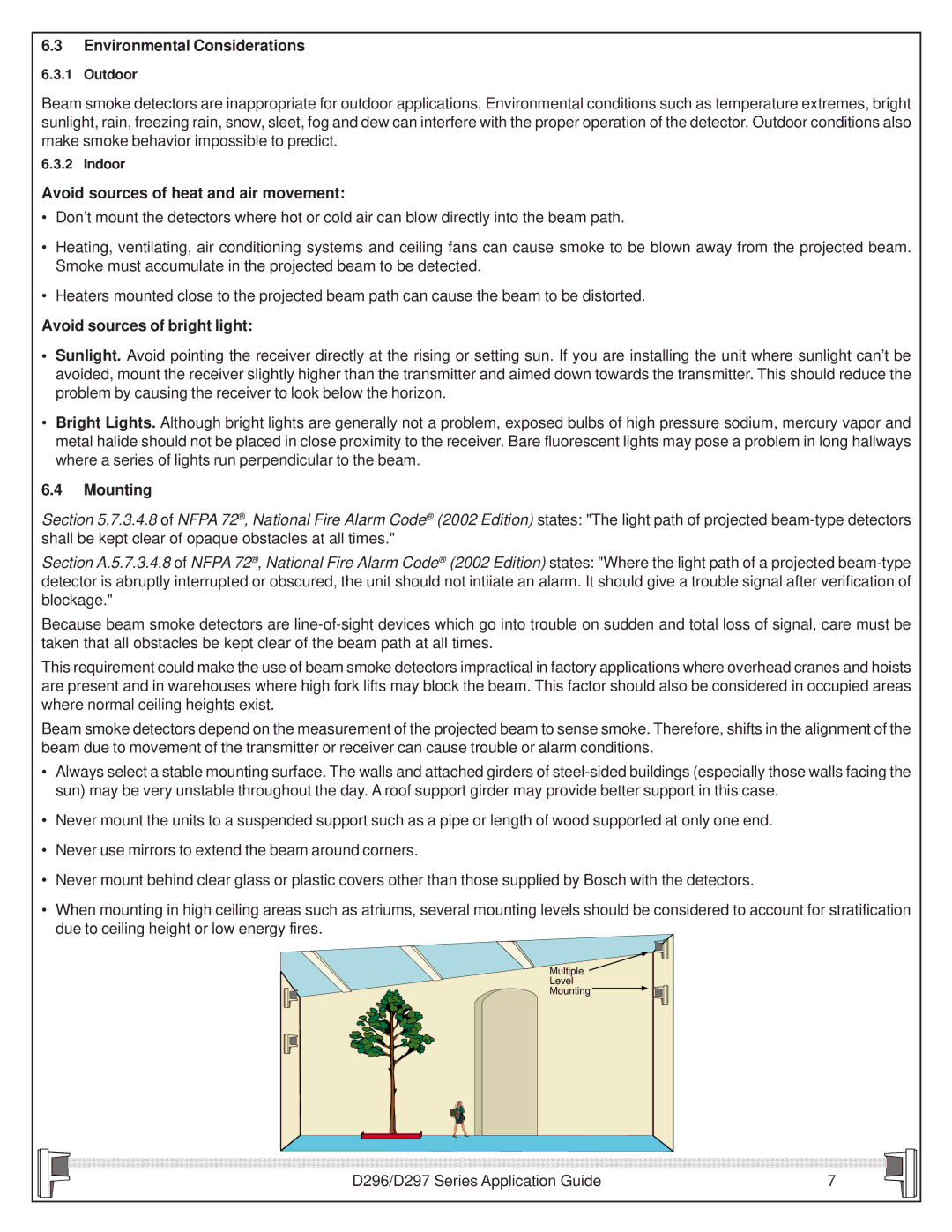
6.3Environmental Considerations
6.3.1 Outdoor
Beam smoke detectors are inappropriate for outdoor applications. Environmental conditions such as temperature extremes, bright sunlight, rain, freezing rain, snow, sleet, fog and dew can interfere with the proper operation of the detector. Outdoor conditions also make smoke behavior impossible to predict.
6.3.2 Indoor
Avoid sources of heat and air movement:
•Don’t mount the detectors where hot or cold air can blow directly into the beam path.
•Heating, ventilating, air conditioning systems and ceiling fans can cause smoke to be blown away from the projected beam. Smoke must accumulate in the projected beam to be detected.
•Heaters mounted close to the projected beam path can cause the beam to be distorted.
Avoid sources of bright light:
•Sunlight. Avoid pointing the receiver directly at the rising or setting sun. If you are installing the unit where sunlight can’t be avoided, mount the receiver slightly higher than the transmitter and aimed down towards the transmitter. This should reduce the problem by causing the receiver to look below the horizon.
•Bright Lights. Although bright lights are generally not a problem, exposed bulbs of high pressure sodium, mercury vapor and metal halide should not be placed in close proximity to the receiver. Bare fluorescent lights may pose a problem in long hallways where a series of lights run perpendicular to the beam.
6.4Mounting
Section 5.7.3.4.8 of NFPA 72® , National Fire Alarm Code® (2002 Edition) states: "The light path of projected
Section A.5.7.3.4.8 of NFPA 72® , National Fire Alarm Code® (2002 Edition) states: "Where the light path of a projected
Because beam smoke detectors are
This requirement could make the use of beam smoke detectors impractical in factory applications where overhead cranes and hoists are present and in warehouses where high fork lifts may block the beam. This factor should also be considered in occupied areas where normal ceiling heights exist.
Beam smoke detectors depend on the measurement of the projected beam to sense smoke. Therefore, shifts in the alignment of the beam due to movement of the transmitter or receiver can cause trouble or alarm conditions.
•Always select a stable mounting surface. The walls and attached girders of
•Never mount the units to a suspended support such as a pipe or length of wood supported at only one end.
•Never use mirrors to extend the beam around corners.
•Never mount behind clear glass or plastic covers other than those supplied by Bosch with the detectors.
•When mounting in high ceiling areas such as atriums, several mounting levels should be considered to account for stratification due to ceiling height or low energy fires.
Multiple ![]()
Level
Mounting
D296/D297 Series Application Guide | 7 |
